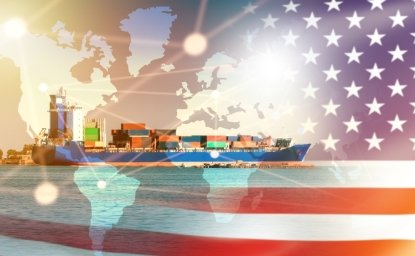Why U.S. Angst Over Chinese Buyouts is Warranted
Worries about Chinese takeovers of key U.S. companies are a deepening concern to both policymakers and consumer advocacy groups. And the American public has reason to be wary of these acquisitions.
Worries about Chinese takeovers of key U.S. companies are a deepening concern to both policymakers and consumer advocacy groups. And the American public has reason to be wary of these acquisitions.
For some people, Jim Beam may be more American than apple pie. Yet the U.S. public took it in stride earlier this month when Suntory, a Japanese conglomerate, bought the bourbon distillery for $13.6 billion.
This was a sharp contrast to U.S. reaction when a Chinese meat producer sought to buy the ham producer Smithfield Foods last year. The deal came under heavy attack. Shuanghui International Holdings faced formidable opposition on Capitol Hill last summer. Union workers and consumer advocates voiced well-publicized concerns about food safety and security.
By year end, though, Shuanghui was able to close the deal for $4.7 billion, the biggest takeover of a U.S. company by a Chinese group.
But worries about Chinese takeovers of key U.S. companies are a deepening concern to both policymakers and consumer advocacy groups. And the American public has reason to be wary of these acquisitions.
It would be folly to dismiss worries about the Smithfield buyout as a cultural misunderstanding or irrational fear. U.S. concerns about Chinese buyouts are not simply déjà vu of the American worries during the Japanese buying spree of the 1980s and ‘90s. Instead, we need to understand China’s rationale behind this acquisition, and examine how it may affect U.S. consumers. We also should explore how this deal fits into the larger picture of Beijing’s overseas asset-buying strategy.
Some now dismiss the current U.S. fear of an insatiable Chinese appetite for all things American as an over-reaction. After all, the argument goes, when Japanese lust for U.S. assets spiked roughly two decades ago — Japan’s buying spree ranged from Rockefeller Center in New York City to the Pebble Beach golf course in California — American hostility toward Japan also surged. But it eased as Japan’s economic fortunes plunged and the Japanese relinquished their hold on some major purchases — many of which had been based on irrational business decisions.
China’s spree, however, is far different. Not only does the Smithfield deal give China’s biggest meat processor a U.S. foothold, it is viewed as a template for many future large-scale buyouts of U.S. companies by Chinese conglomerates.
“Smithfield might be the first acquisition of a major food and agricultural company,” Senator Debbie Stabenow (D-Mich.), chairwoman of the Senate Agriculture Committee warned last July, “but I doubt it will be the last.”
What sets these Chinese acquisitions apart from most other foreign purchases is that Chinese entities are state-owned — and so driven by national interests as well as economic. Chinese investments in the United States doubled in 2013, according to a recent report on Chinese foreign direct investment trends by the Rhodium Group.
If 2013 marks the first year of a wave of Chinese acquisition of U.S. assets, it may also mark the beginning of Chinese authorities’ strategic maneuvering for U.S. interests.
After the Smithfield buyout, Chinese companies are now better equipped to address the various hurdles that future acquisitions may face. It has allowed Beijing to think through what its real needs are, and to experience the public relations campaigns critical to winning over the U.S. public.
Beijing’s appetite looks strategic — focusing on energy and real estate, as well as food. These economic sectors are key to ensuring China’s domestic growth. Buying out Smithfield or Chesapeake Energy is no vanity purchase, driven by a company’s ego — like so many of Japan’s acquisitions at the height of the 1990s economic bubble. Rather, it reflects Beijing’s longer-term vision for its own national security.
Shuanghui’s determination to buy Smithfield despite the many obstacles demonstrates that the corporation is serious about making this investment yield returns for the entire Chinese economy, not just the company’s bottom line.
Meanwhile, given many Chinese companies’ poor track record in adhering to food safety standards, U.S. consumers should be worried about how the new ownership may affect their diet. Though it may increase U.S. agricultural export opportunities, it could also result in lowered standards.
Food safety scares are an increasingly serious problem in China. Pesticides are often misused and toxins have been found in many staples, including milk. Perhaps the most notorious incident, the poisoning of baby formula, sparked outrage among Chinese and foreign buyers alike.
Such concerns did not arise from Suntory’s buyout of Beam Inc. After all, Maker’s Mark whisky or Courvoisier cognac are non-essential to the American diet. (Though some may dispute this.)
Moreover, even as worries about Japanese products have increased following the 2011 Fukushima nuclear disaster, the country still has a high food safety standard.
Most important, the strong U.S.-Japan bilateral ties are military and political as well as economic. The U.S. public indifference toward Suntory’s buyout of Jim Beam reflects the two allies’ close relationship.
Gone are the days when American lawmakers gnashed their teeth against yet another U.S. buyout by Japan Inc. In addition, once the Japanese economic bubble burst, many of the investments were, in turn, sold off. How resilient the Chinese economy is, however, remains to be seen. It’s also unlikely that Chinese investors will relinquish their U.S. purchases so rapidly.


The Indo-Pacific Program promotes policy debate and intellectual discussions on US interests in the Asia-Pacific as well as political, economic, security, and social issues relating to the world’s most populous and economically dynamic region. Read more



